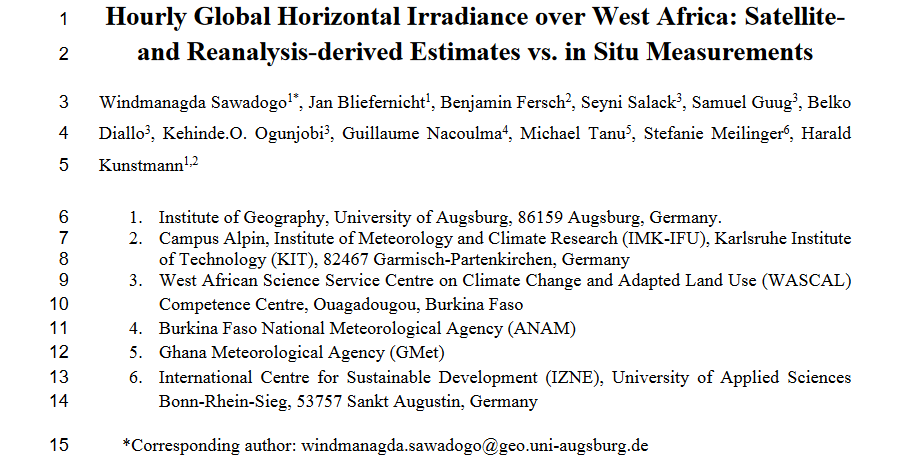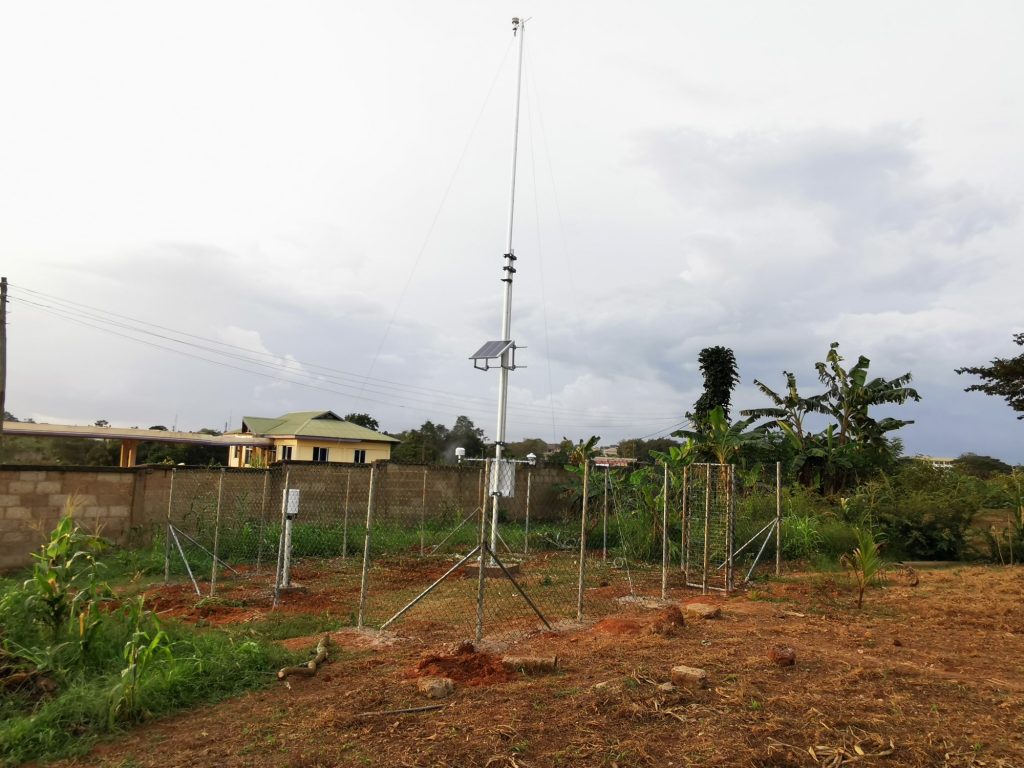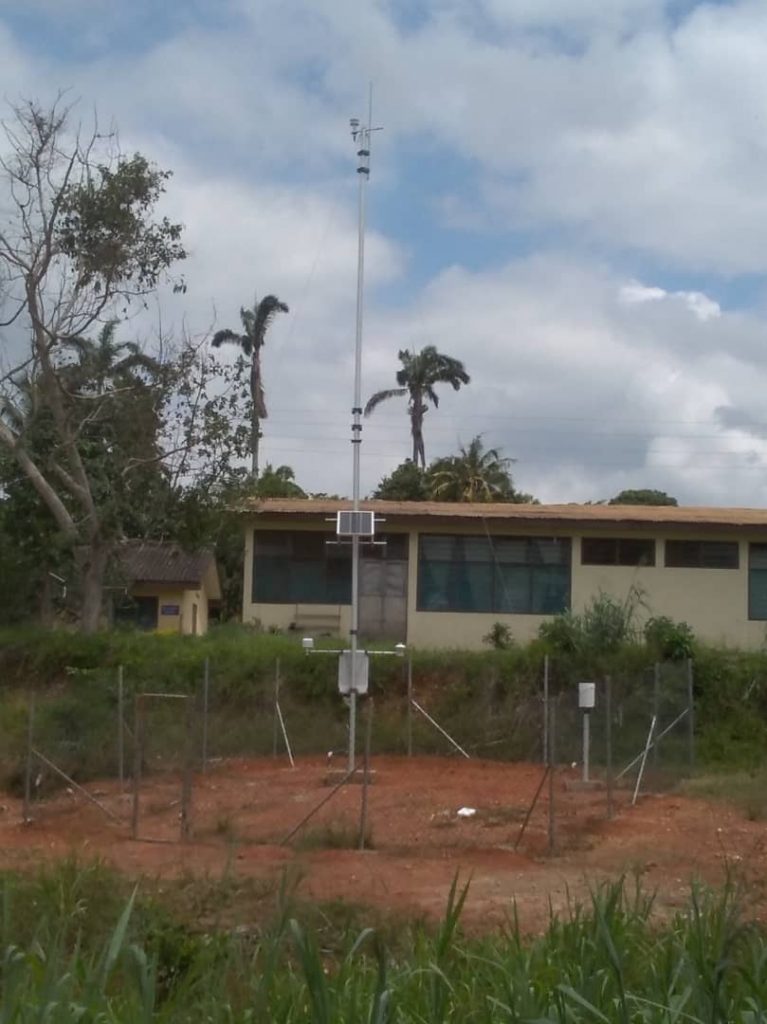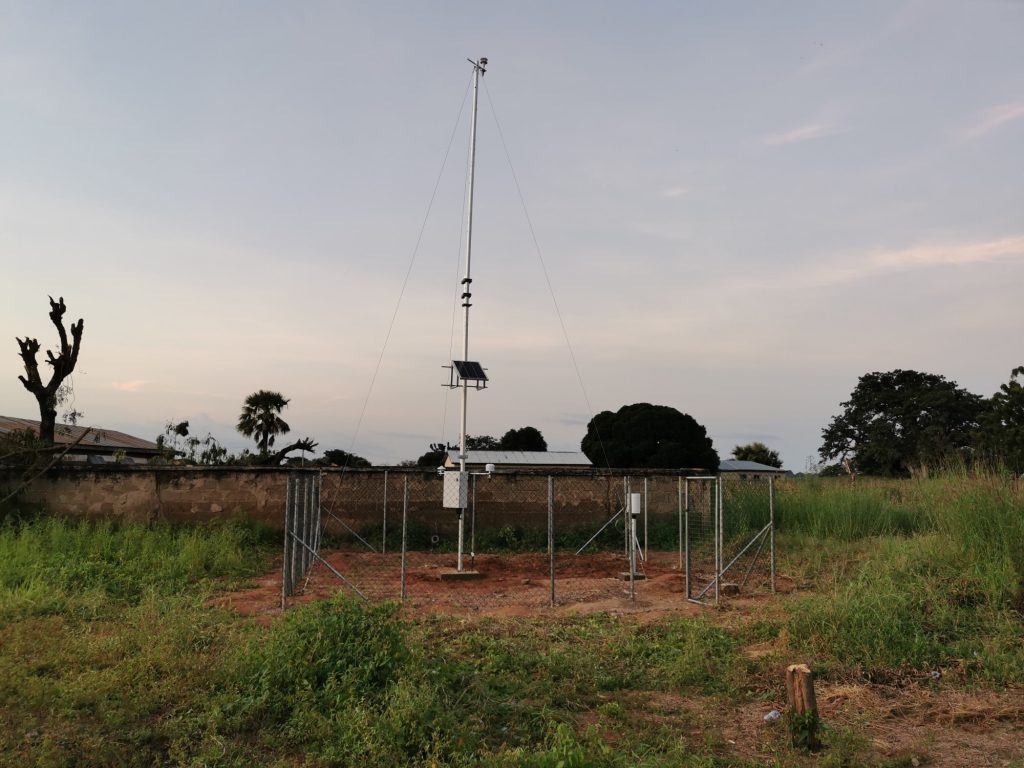
Continue reading Pre-print published:Windmanagda Sawadogo among other project members handed in a publication, which is now available as a pre-print

Continue reading Pre-print published:Windmanagda Sawadogo among other project members handed in a publication, which is now available as a pre-print
Interview with Dr. Windmanadga Sawadogo from University of Augsburg. He talks about his recent trip to the EnerSHelF field sites and about processing the collected meteorological data.
You are working in WP 3.2, focusing on high-resolution meteorological forecasts for Ghana. Can you explain how your work contributes to the overall aim of the EnerSHelF project to improve and disseminate marketable PV-based energy solutions for health facilities in Ghana?
The work of the University Augsburg is to produce weather forecasts for the three pilot sites and to spread the data to different partners in the project. For this, I am working closely with Samer Chaaraoui from the University of Applied Sciences Bonn-Rhein-Sieg (H-BRS), as he needs the forecasting data to improve the accuracy of his models for photovoltaic-hybrid systems. Currently, we are at the stage where everything is ready, and we are running the forecasts for the three sites every day. The collected data are kept at our servers at the KIT campus at Garmisch-Partenkirchen while we are waiting for the FTP (File Transfer Protocol) from our partner WASCAL (West African Science Service Centre on Climate Change and Adapted Land Use) to upload the data so that everyone can easily access the data.
Continue reading Collecting and processing meteorological data


A team of German and Ghanaian researchers and technicians installed the equipment to collect meteorological data at the health facilties in Kumasi, Akwatia, and Kologo for the EnerSHelF project.
Report by Windmanagda Sawadogo, Samuel Guug, and Edmond Borteye
At the end of September, a team from University of Augsburg (UniA) and West African Science Service Centre on Climate Change and Adapted Land Use (WASCAL) met in Ghana to install Automatic Weather Stations (AWS) for the collection of meteorological data at the three pilot sites of the EnerSHelF project. Within the project, both partners collaborate in work package (WP) 3.2 under the lead of UniA to collect and evaluate in situ climate data (You can read interviews with both partners here and here). The aim of the WP is to forecast the key meteorological variables for solar power generation and consumption at the field sites. Thereby, WASCAL acts as an interface between the EnerSHelF project teams in Germany and local stakeholders, for instance, the Ghana Meteorological Agency. Furthermore, they are responsible to provide technical support in collecting and processing observational data from the local observatory networks. The installation of the AWS at the three field sites spread over a period of 14 days and the field trip’s schedule included a close engagement with local authorities, securing materials and civil works, as well as mounting of sensors and testing the installed equipment.
Continue reading Automatic Weather Stations installed at the pilot sites in Ghana
Interview with Prof. Harald Kunstmann and Dr. Windmanadga Sawadogo from University of Augsburg. They explain, how work package 3.2 uses the analysis of meteorological data to select the best configuration for the solar power generation at the three selected health facilties.
Work package 3 aims to improve the country- and sector-based forecast of solar power generation (PV) and consumption (health facilities). What is the specific aim of your work package “High resolution energy meteorological forecasts for Ghana”?
Our working group aims to forecast the key meteorological variables for solar power generation and consumption at the field sites. That includes for instance solar irradiation and air temperature.
How do you address this, what activities have you already started to implement the necessary measurements?
Continue reading How Meteorological Data is used in the EnerSHelF Project